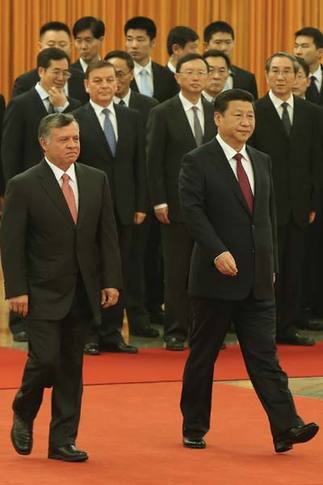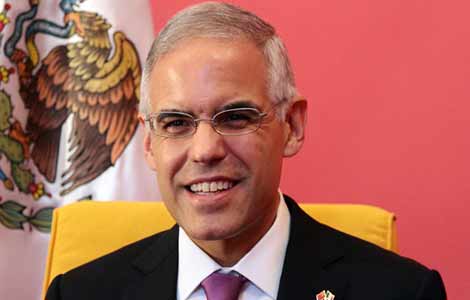China asked to help end Syrian conflict
Updated: 2013-09-19 00:37
By Li Xiaokun (China Daily)
|
||||||||
Jordanian king calls for Chinese support to resolve the situation as country's influence grows in region
Jordan's King Abdullah II ibn Al-Hussein on Wednesday called on China to exert its influence to help resolve the conflict in Syria. The king's comments came as world powers kicked off negotiations on a draft resolution on Syria's chemical weapons.
| ||
"It is in that spirit that I am here today to discuss with you, as a key member of the United Nations Security Council and a friend of Jordan and the Middle East, ways and means of achieving peace, stability, civility and prosperity in our region through an active role in the (Israel-Palestine) peace process as well as that of the Syrian conflict," Abdullah told President Xi Jinping on Wednesday.
Abdullah made the appeal at the start of a meeting between the two leaders at the Great Hall of the People in Beijing.
The king ended his four-day state visit to China later on Wednesday, after a meeting with Premier Li Keqiang.
Premier Li said China is willing to consolidate political mutual trust, strengthen strategic communication and collaboration with Jordan.
In talks with Xi, Abdullah said Jordan appreciates China's role in promoting the Middle East Peace Process and in searching for a political settlement for the Syrian issue.
Calling Jordan "a good friend and partner" of China, Xi called on the two countries to maintain communications on major international and regional affairs.
Jordan has been trying hard to avoid friction with Syria, its larger neighbor. A Jordanian government spokesman said in late August that the pro-US kingdom will not be a launch pad for attacks on Syria. US troops are stationed in Jordan.
The spokesman said Jordan would prefer a "diplomatic solution to the Syrian crisis".
Beijing and Moscow have both called for a negotiated political settlement to the conflict, which has been ongoing for more than two years.
Abdullah's request came as negotiations among the five permanent members of the UN Security Council began in New York on Tuesday, focusing on a draft resolution on Syria's arsenal of chemical weapons.
The meeting with Xi came a day after UN investigators confirmed the use of sarin nerve gas in an attack on Aug 21. US President Barack Obama has said it is "inconceivable" that anyone other than the Syrian government could have carried out the attack.
But on Wednesday, Russia said the Syrian government had handed over new evidence that implicated rebel forces in the chemical attack.
Hua Liming, former Chinese ambassador to Iran and the United Arab Emirates, said Jordan is deeply concerned about a possible military conflict which could see "Syrian refugees pour into Jordan".
On Monday, Jordanian officials said the number of Syrian refugees crossing into the country rose nearly tenfold last week, to an average 900 people per day, the highest level for months.
Jordan is the second-largest host of Syrian refugees after Turkey. There are more than 560,000 refugees in Jordan.
Abdullah is the latest in a string of Middle Eastern leaders to visit Beijing, and China has frequently dispatched diplomats to the region.
Wu Sike, China's special envoy to the Middle East, visited Jordan in May.
Li Guofu, director of the Center for Middle East Studies at the China Institute of International Studies, said that, in addition to the challenges posed by the refugees, Jordan is also troubled by other problems brought about by the Syrian crisis, such as the impact on trade and possible Syrian retaliation if Jordan is used by the US as a base for attacks.
"In the broad position, Jordan's position is similar to that of Russia and China. However, Jordan is an ally of the US and has relatively good relations with Gulf countries, so naturally there are also differences in their stances," Li said.
He said that despite the Syrian issue, the main focus of King Abdullah's visit was to establish ties with new Chinese leaders.
"By attending the China-Arab States Expo, the king has shown the importance he attaches to the ties," Li said, adding that bilateral trade is growing quickly, although the volume is not yet large.
Earlier in his visit, the king attended an expo that included China and Arab states in Northwest China's Ningxia Hui autonomous region, home to more than 10 percent of China's 20 million Muslims.
AP, Reuters and AFP contributed to this story.
- Assad says will abide by chemical weapon deal
- Assad hails Russia's supportive stance on Syria
- China to work with int'l community on Syria
- China supports US-Russia deal on Syria
- China calls for Syria cease-fire
- China appreciates UN report on Syria
- Deal on Syria is good news for Obama
- UN confirms nerve gas used in Syria
- Syria stresses commitment to US-Russian deal
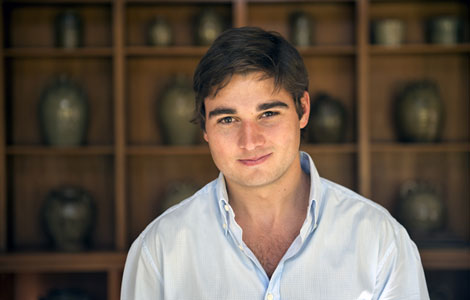
 Tapestry of Chinese culture and a Harvard teen's feeling
Tapestry of Chinese culture and a Harvard teen's feeling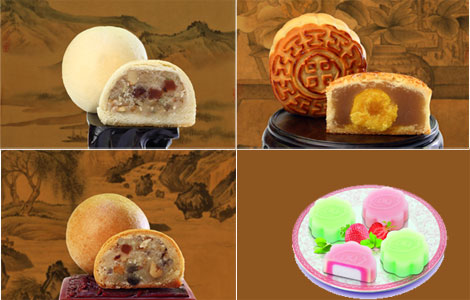
 A simple but pure festival tradition
A simple but pure festival tradition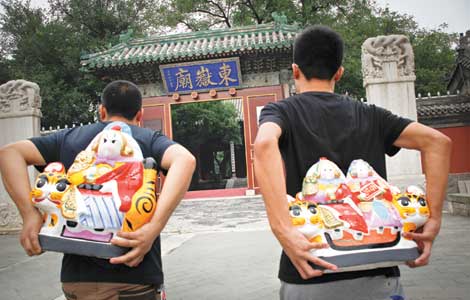
 Beijing's rabbit god returns
Beijing's rabbit god returns
 It's the real deal: Class explains genuine vs fake
It's the real deal: Class explains genuine vs fake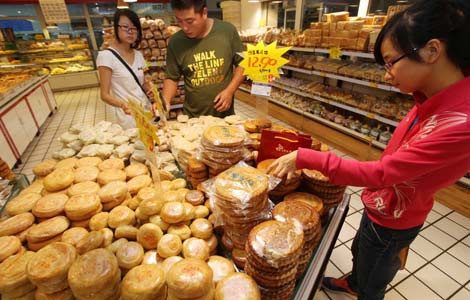
 An eclipse of the mooncake
An eclipse of the mooncake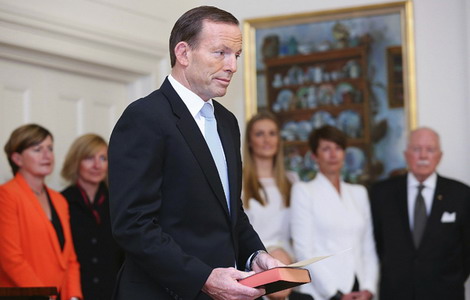
 Australia's new government sworn in
Australia's new government sworn in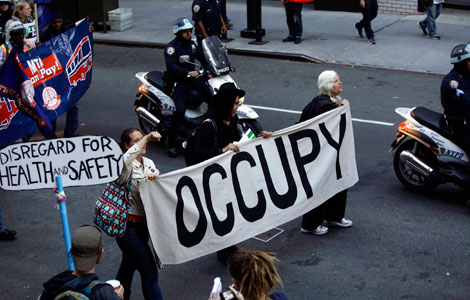
 Occupy Wall Street marks its second anniversary
Occupy Wall Street marks its second anniversary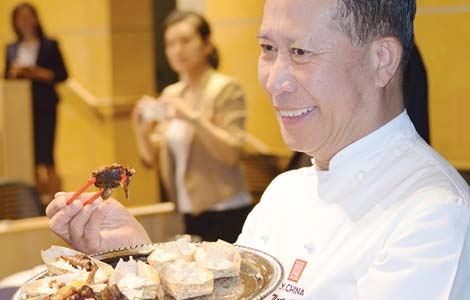
 Learning China through its food
Learning China through its food
Most Viewed
Editor's Picks

|

|

|

|

|

|
Today's Top News
Fed surprise: No pullback in bond purchases
Sanctions no solution to DPRK issue
A new tool to measure greenhouse gas is out
Godiva's chocolate mooncakes find favor in US
CNOOC makes trading debut in Toronto
China asked to help end Syrian conflict
Trade treaties trade spotlight
Starbucks asks customers to leave guns at home
US Weekly

|

|
